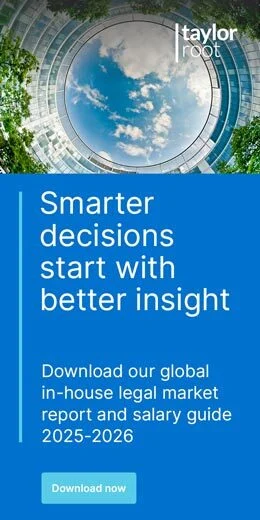How to make your first data protection hire
Making your first data protection hire is a major milestone, whether you’re responding to increasing GDPR scrutiny, dealing with a recent data breach or preparing for a new AI or data processing activity. Your business may be under pressure to demonstrate GDPR compliance or simply recognising that your business needs more structured support around personal data.
Whatever the catalyst, the question is: who should you hire and why?
Why are you hiring a DPO or data protection officer?
Start with the objective. Are you resolving a compliance bottleneck, managing operational overload or aiming to embed privacy by design across the organisation? Your goal will shape the candidate profile.
If the issue is delivery, you’ll likely want someone practical and hands-on, perhaps a former second-in-command to a data protection officer (DPO), who understands how to manage core activities, processing activities and build workable frameworks.
If the focus is structure, governance and senior visibility, consider someone who has led a data protection function before. A strong DPO will be able to define and implement your data protection compliance roadmap, manage stakeholders and connect privacy with business impact.
Do you need a Lawyer or a dedicated Data Protection Officer?
If your legal team currently covers privacy and data protection, it’s worth asking whether you need more of the same or a shift in approach.
While some businesses default to hiring a lawyer, others benefit from someone with a background in risk assessments, cybersecurity or governance. A strong DPO doesn’t need to be a Solicitor, they need to understand the law, interpret data protection laws in context and apply them practically to business processes and special category data.
The key is finding someone who understands both compliance and business functionality, especially when handling sensitive data, data subjects’ rights or managing data processing activities.
Find out more on how to build your data protection team.
Should you hire a permanent DPO or an interim contractor?
If you’re still working out what your DPO role should look like, a senior interim data protection contractor can be a strategic first step. They can review your current state, carry out data protection impact assessments and help you define your data protection officer job description before making a long-term commitment.
This allows for flexibility while ensuring you meet your GDPR compliance requirements and understand your real risks, such as handling criminal convictions data, potential conflict of interest or issues flagged by the Information Commissioner’s Office (ICO).
How to write a DPO job description that attracts the right candidates
Before posting the role publicly, pressure test the expectations. Is the salary aligned with the level of responsibility? Does the spec reflect realistic data protection activities or are you looking for a unicorn?
The privacy community is small and vocal. If a role seems under-resourced or misaligned, that will be noticed. Get advice on market expectations and benchmarking, especially across your industry, region and whether you’re hiring in-house or via a service provider.
Having the right template and language will ensure your DPO role is positioned correctly and taken seriously.
What to look for when hiring your first DPO
Your first data protection officer will often act as a point of contact between legal, tech, marketing, operations and security. They’ll ensure data controllers and data processors understand their responsibilities and help the business build trust with users.
Technical expertise is important, but so is the ability to influence. Ask about their approach to stakeholder engagement, how they’ve embedded privacy by design and how they’ve made privacy usable, not just compliant.
Why your first DPO hire matters more than you think
When done right, hiring a DPO builds long-term business resilience. It improves your customer experience, supports data security and ensures you’re prepared for ICO inquiries. It also sets the tone for how data protection is understood and prioritised across your organisation.
So be honest about your current capabilities, clear about your needs and open to letting a specialist help define what great looks like.
Need a sounding board?
I’ve supported dozens of organisations, from FTSE 100 companies to startups and newly regulated businesses, with their first Data Protection Officer or DPO hire. If you’re navigating this decision, feel free to get in touch. I’m always happy to help shape the ask.




